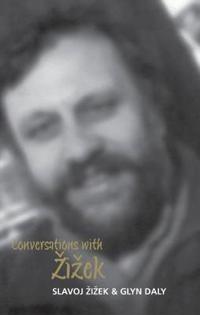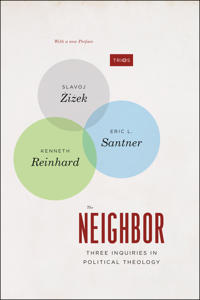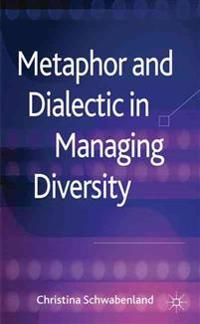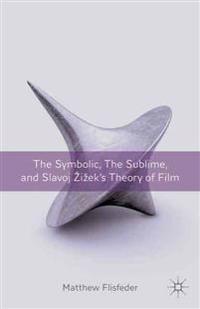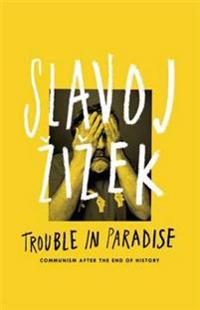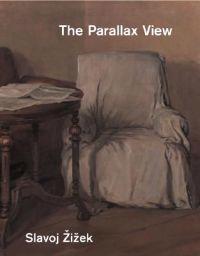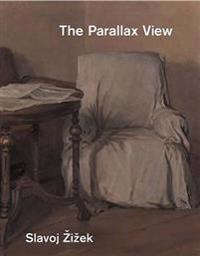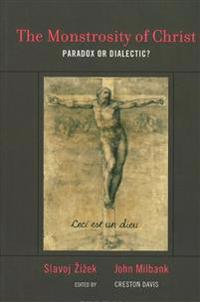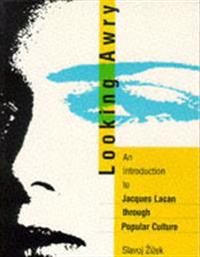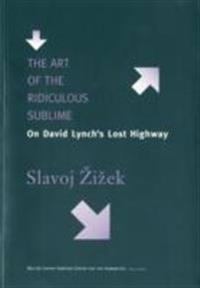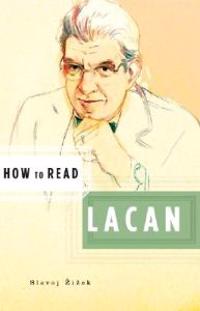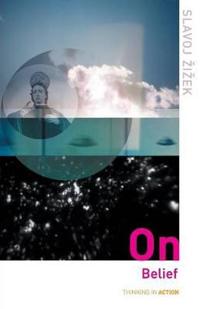Conversations with Zizek (Häftad)
avSlavoj Zizek, Glyn Daly
ISBN: 9780745628974 - UTGIVEN: 200312In this new book, Slavoj Zižek and Glyn Daly engage in a series of entertaining conversations which illustrate the originality of Zižek's thinking on psychoanalysis, philosophy, multiculturalism, popular/cyber culture, totalitarianism, ethics and politics.
An excellent introduction to one [...]Zizek (Pocket)
avMarcus Pound, Slavoj (AFT) Zizek, Marcus Pound
ISBN: 9780802860019 - UTGIVEN: 2008-11It has been the brilliance of Slovenian philosopher Slavoj iek (b. 1949) to uniquely weave theology, psychoanalysis, and politics together into stunning commentary on contemporary culture. Assuming little prior knowledge of this controversial (atheist, communist) philosopher, Marcus Pound provides t[...]
On Belief (E-bok)
avSLAVOJ ZIZEK
ISBN: 9780203167090What is the basis of belief in an era when globalization, multiculturalism and big business are the new religion? Slavoj Zizek, renowned philosopher and irrepressible cultural critic takes on all comers in this compelling and breathless new book.From 'cyberspace reason' to the paradox that is 'Weste[...]
The Neighbor (Häftad)
avSlavoj Zizek, Eric L. Santner, Kenneth Reinhard
ISBN: 9780226045207 - UTGIVEN: 2013-08In "The Neighbor", three of the most significant intellectuals working in psychoanalysis and critical theory collaborate to show how the problem of neighbor love opens questions that are fundamental to ethical inquiry and suggest a new theological configuration of political theory. Their three exten[...]
Metaphor and Dialectic in Managing Diversity (Inbunden)
avJohn Milbank, Slavoj Zizek
ISBN: 9780230252554 - UTGIVEN: 201206The diversity of the workforce and the implications for management continue to be the focus of a great deal of interest. This is partly because of the importance and urgency of the issues that diversity entails and also because of a growing recognition that many of the dilemmas of diversity manageme[...]
The Symbolic, the Sublime, and Slavoj Zizek's Theory of Film (Inbunden)
avMatthew Flisfeder
ISBN: 9780230341470 - UTGIVEN: 2012-10Slavoj Zizek is one of the world's most important contemporary public intellectuals. Much of his popularity stems from his constant and recurring references to popular culture and cinema, as well as his own appearances in films such as The Pervert's Guide to Cinema and Examined Life. Although Zizek [...]
Trouble in Paradise (Inbunden)
avSlavoj Zizek
ISBN: 9780241004968 - UTGIVEN: 2014-11In Trouble in Paradise, Slavoj Zizek, one of our most famous, most combative philosophers, explains how by drawing on the ideas of communism, we can find a way out of the crisis of capitalism. There is obviously trouble in the global capitalist paradise. But why do we find it so difficult to imagine[...]
The Parallax View (Inbunden)
avSlavoj Zizek
ISBN: 9780262240512 - UTGIVEN: 200603The Parallax View is Slavoj Zizek's most substantial theoretical work to appear in many years; Zizek himself describes it as his magnum opus. Parallax can be defined as the apparent displacement of an object, caused by a change in observational position. Zizek is interested in the "parallax gap" sep[...]
The Parallax View (Häftad)
avSlavoj Zizek
ISBN: 9780262512688 - UTGIVEN: 200903The Parallax View is Slavoj Zizek's most substantial theoretical work to appear in many years; Zizek himself describes it as his magnum opus. Parallax can be defined as the apparent displacement of an object, caused by a change in observational position. Zizek is interested in the "parallax gap" sep[...]
The Monstrosity of Christ (Häftad)
avSlavoj Zizek, John Milbank
ISBN: 9780262516204 - UTGIVEN: 201103"What matters is not so much that i ek is endorsing a demythologized, disenchanted Christianity without transcendence, as that he is offering in the end (despite what he sometimes claims) a heterodox version of Christian belief."--John Milbank"To put it even more bluntly, my claim is that it is Mil[...]
Looking Awry (Häftad)
avSlavoj Zizek
ISBN: 9780262740159 - UTGIVEN: 199210Slavoj Zizek, a leading intellectual in the new social movements that are sweeping Eastern Europe, provides a virtuoso reading of Jacques Lacan. Zizek inverts current pedagogical strategies to explain the difficult philosophical underpinnings of the French theoretician and practician who revolutioni[...]
The Puppet and the Dwarf (Häftad)
avSlavoj Zizek
ISBN: 9780262740258 - UTGIVEN: 200310Slavoj Zizek has been called "an academic rock star" and "the wild man of theory"; his writing mixes astonishing erudition and references to pop culture in order to dissect current intellectual pieties. In The Puppet and the Dwarf he offers a close reading of today's religious constellation from the[...]
The Art of the Ridiculous Sublime (Pocket)
avSlavoj Zizek
ISBN: 9780295979250 - UTGIVEN: 2000-06"The Art of the Ridiculous Sublime" is first of all the detailed reading of David Lynch's "Lost Highway", based on the premises of Lacanian psychoanalysis. Lynch's unique universe of the 'ridiculous sublime' is interpreted as a simultaneous playful staging and traversing of the fundamental ideologic[...]
How to Read Lacan (Häftad)
avSlavoj Zizek
ISBN: 9780393329551 - UTGIVEN: 200701The How to Read series provides a context and an explanation that will facilitate and enrich your understanding of texts vital to the canon. These books use excerpts from the major texts to explain essential topics, such as Jacques Lacan's core ideas about enjoyment, which re-created our concept of [...]
On Belief (Häftad)
avSlavoj Zizek
ISBN: 9780415255325 - UTGIVEN: 200105Gets behind the contours of the way we normally think about belief, in particular Judaism and Christianity.[...]
Slavoj Zizek (Häftad)
avTony Myers
ISBN: 9780415262651 - UTGIVEN: 200306Slavoj Zizek is no ordinary philosopher. Approaching critical theory and psychoanalysis in a recklessly entertaining fashion, Zizek's critical eye alights upon a bewildering and exhilarating range of subjects, from the political apathy of contemporary life, to a joke about the man who thinks he's a [...]
Organs without Bodies (Häftad)
avSlavoj Zizek
ISBN: 9780415519045 - UTGIVEN: 201204With a new introduction by the author In this deliciously polemical work, a giant of cultural theory immerses himself in the ideas of a giant of French thought. In his inimical style, Zizek links Deleuze's work with both Oedipus and Hegel, figures from whom the French philosopher distanced himself. [...]
Enjoy Your Symptom! (Storpocket)
avSlavoj Zizek
ISBN: 9780415772594 - UTGIVEN: 200709The title is just the first of many startling asides, observations and insights that fill this guide to Hollywood on the Lacanian psychoanalyst's couch. Zizek introduces the ideas of Jacques Lacan through the medium of American film, taking his examples from over 100 years of cinema, from Charlie Ch[...]
Abyss of Freedom (Häftad)
avSlavoj Zizek
ISBN: 9780472066520 - UTGIVEN: 199705An essay by philosopher Slavoj Zizek, with an English translation of Schelling's beautiful and evocative "Ages of the World, second draft
[...]Slavoj Zizek (Häftad)
avIan Parker
ISBN: 9780745320717 - UTGIVEN: 2004-03'When I read Ian Parker's manuscript, I experienced an underlying solidarity: despite obvious differences, we share the same basic political concerns and visions. And this makes his critical remarks always pertinent!' Slavoj Zizek 'This is not simply the best critical introduction to Zizek - in a m[...]
Conversations with Zizek (Inbunden)
avSlavoj Žižek, Glyn Daly
ISBN: 9780745628967 - UTGIVEN: 2004-01-31The Most Sublime Hysteric: Hegel with Lacan (Häftad)
avSlavoj Zizek
ISBN: 9780745663746 - UTGIVEN: 2014-07-31Slavoj Zizek is one of the most widely-read and controversial philosophers writing today. He has a large following and all of his books sell extremely well.[...]
The Most Sublime Hysteric: Hegel with Lacan (Häftad)
avSlavoj Zizek
ISBN: 9780745663753 - UTGIVEN: 2014-07-31Demanding the Impossible (Häftad)
avSlavoj Zizek
ISBN: 9780745672281 - UTGIVEN: 2013-08-31Where are we today and what is to be done? Slavoj Zizek ponders these questions in this unique and timely book.[...]

